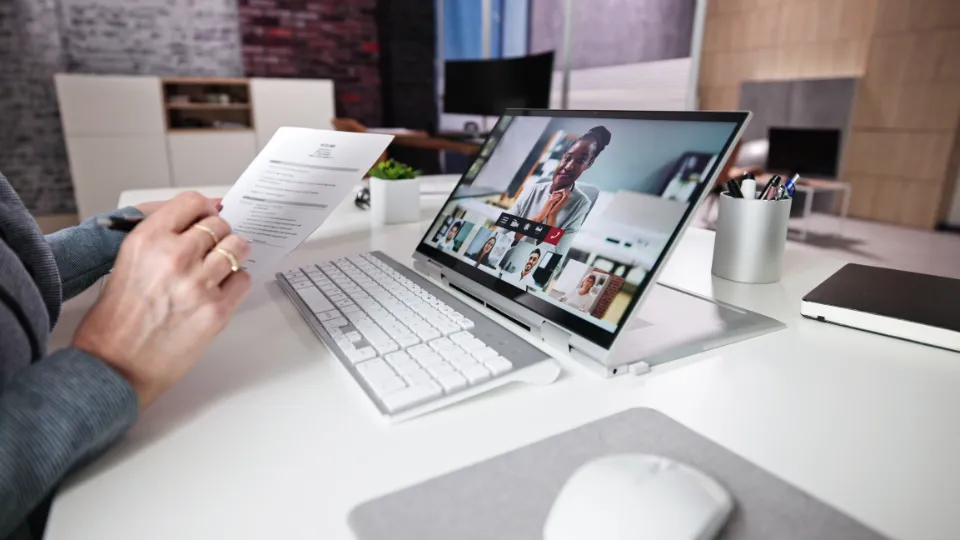
Best Practices To Manage Multigenerational Workforce In Healthcare
 Admin
Admin
Published Date:
30 Jul 2024,
18:30:00
Tags:
HealthcareWorkforce StrategiesMultigenerational TeamMultigenerational Staffing SolutionsWorkforce
Healthcare is one of the very few sectors that brings people from all walks of life under a single roof to work, thus providing various opportunities and simultaneously posing great challenges. Managing a multigenerational workforce is the only answer to tapping the strength of every generation. At a time when 58% of millennials believe in staying with the organization for less than three years, strategies need to be more robust than ever.
In this blog, we’ll explore the best practices for managing the multigenerational workforce in healthcare.
Staffing software development is our expertise. If you need to develop a software please schedule a free demo!
Understanding the Generations in Healthcare
Healthcare organizations today have multiple generations working in one team. Each has something unique to offer; these are:
- Baby Boomers
Respectfully hold leadership positions. They boast loyalty and experience.
- Generation X
From their adaptability to bettering work-life balance.
- Millennials
Tech-savvy, value-oriented, and seeking work that has purpose and opportunities to get ahead in careers quickly.
- Generation Z
The newest entrants are highly proficient with Leveraging technology and eager to make an impact.
Recognizing the characteristics of each generation is the first step toward effective multigenerational workforce strategies.
See Also: The Role Of AI In Healthcare Staffing Transformation
Key Multigenerational Workforce Strategies
Promote Cross-Generational Mentorship
One of the best practices of multigenerational staffing is creating a mentorship culture. Pairing the younger generation with experienced professionals is going to foster knowledge transfer as well as respect between the two parties. For instance, Baby Boomers can share their extended experience, while Millennials can introduce new technologies and innovative solutions.
Flexible Work Arrangements
Flexible working hours or remote working can tremendously enhance job satisfaction among all age groups. Depending upon the age diversity in workforce management, it has to understand the different work-life balance needs and find the adjustment for such imbalances. This will not only retain talent but also boost productivity.
Training Programs
Another aspect of working with a multigenerational workforce is investment in customized training based on the requirements of different generations. The older ages require training on new technologies, while the younger ones require more programs that enable development into leadership roles. A survey revealed that 6 out of 10 millennials said that their leadership abilities are not fully developed, which translates to this being an area where improvement needs to be made.
Need advanced solutions for your therapy staffing agencies? Our team specializes in developing software solutions for staffing agency needs. Contact us today for more info!
Building a Cohesive Multigenerational Team in Healthcare
Emphasize Inclusivity and Respect
This involves creating an inclusive work environment where each age group feels valued. Open communication with good ways of listening to people's opinions also fosters this issue. Team-building exercises bring people together to transcend generational gaps.Both recognising and leveraging strengths define the management of a multigenerational workforce.
Recognize and Leverage Strengths
Each generation presents strengths to be shared in the same table. Baby Boomers possess in-depth industry knowledge, while Generation X brings problem-solving skills, Millennials drive innovation, and Generation Z has new perspectives. An effective generational workforce healthcare management arises when its strengths contribute towards organizational goals.
See Also: Top 5 Must-Have Features In Healthcare Staffing Software
Implementing Multigenerational Staffing Solutions
Foster a Collaborative Culture
Helping workers to develop a culture of collaboration rather than competition will enhance intergenerational team dynamics. Common objectives for achievement, shared clientele, and recognition of collective success can foster teamwork. This will improve morale but also enhance the quality of care.
Utilize Technology Wisely
Technology can play a great role in enabling the management of a multigenerational team healthcare. Implement user-friendly tools that facilitate communication and collaboration. The key is making sure all the generations understand how to use them, which is accomplished by providing new technologies training and support.
Offer Career Development Opportunities
Clear career paths and developmental opportunities are key to retaining talent, especially the millennials. Because millennials will eventually dominate 75 percent of the global workforce by 2025, investing in their growth is a strategic move. Development programs tailored to unique aspirations of each generation serve to ensure that every one of them feels valued and motivated.
Want to enhance your daycare staffing agency? Our team excels in creating perfect software solutions for staffing agencies. Need assistance, Contact us now!
Best Practices for Managing a Multigenerational Workforce
Regular Feedback and Recognition
Feedback and appreciation could be a strong way of enhancing engagement among employees. Most generations have different natures of preferred feedback, and hence, approaches to such are important. Overall job satisfaction will improve by recognizing individual achievements as well as giving constructive feedback.
Health and Wellness Programs
These also vary greatly among the needs of a multigenerational workforce, where comprehensive health and wellness programs can address several needs. From mental health support to fitness programs, health and wellness initiatives improve overall well-being and productivity.
Communication Strategies
Effective management of a multigenerational workforce can be achieved through communication. Apply the right mix of communication channels to cover all employees. While some people will prefer face-to-face meetings, others may prefer digital communication. Soliciting feedback on communication methods in regular periods could help refine your approach.
See Also: How to Attract Top Talent in Homecare: Strategies for Success
Conclusion
This, therefore, would require a more subtle grasp of the needs and strengths of each generation to effectively manage the multigenerational workforce of health care. Appropriate tailored multigenerational workforce strategies coupled with a workplace that is more inclusive and respectful can realize the immense potential available from healthcare organizations' diverse teams. This not only amends employee satisfaction and retention but also improves quality patient care.
These best practices, multigenerational staffing, and continuous improvement will certainly put healthcare organizations in an excellent position to wrestle with this increasingly complex and competitive environment. Embracing diversity and the fostering of collaboration are critical in building an effective and resilient team of healthcare multi-generations.
From this perspective, generational workforce healthcare success seems to depend on acknowledging and valuing the contributions of different age groups, providing opportunities for learning between generations, and constantly keeping pace with changing workforce needs
Need innovative clinic care staffing software solutions? Our team has the skills and experience to create software solutions for clinics. If you require assistance, please Get in touch with us!
FAQs
Q1. Why is managing a multigenerational workforce important in healthcare?
Managing a multigenerational workforce is crucial because it leverages the diverse skills and perspectives of different age groups, improving patient care and fostering a more inclusive work environment.
Q2. What are effective multigenerational workforce strategies?
Effective multigenerational workforce strategies include promoting cross-generational mentorship, offering flexible work arrangements, providing tailored training programs, fostering collaboration, and utilizing technology wisely.
Q3. How can healthcare organizations create an inclusive environment for a diverse-age workforce?
To create an inclusive environment, healthcare organizations should emphasize respect, encourage open communication, recognize and leverage generational strengths, and implement regular team-building activities.
Q4. What role does technology play in managing a multigenerational team?
Technology facilitates communication and collaboration. Implementing user-friendly tools and providing training ensures that all generations can effectively use technology to enhance their work.
Q5. How can healthcare organizations support career development for a multigenerational workforce?
Organizations can support career development by offering tailored programs, providing clear career pathways, and creating opportunities for leadership development to meet the needs of all generations.
Comments
Published Date: 30 Jul 2024, 18:30:00
Healthcare is one of the very few sectors that brings people from all walks of life under a single roof to work, thus providing various opportunities and simultaneously posing great challenges. Managing a multigenerational workforce is the only answer to tapping the strength of every generation. At a time when 58% of millennials believe in staying with the organization for less than three years, strategies need to be more robust than ever.
In this blog, we’ll explore the best practices for managing the multigenerational workforce in healthcare.
Staffing software development is our expertise. If you need to develop a software please schedule a free demo!
Understanding the Generations in Healthcare
Healthcare organizations today have multiple generations working in one team. Each has something unique to offer; these are:
- Baby Boomers
Respectfully hold leadership positions. They boast loyalty and experience.
- Generation X
From their adaptability to bettering work-life balance.
- Millennials
Tech-savvy, value-oriented, and seeking work that has purpose and opportunities to get ahead in careers quickly.
- Generation Z
The newest entrants are highly proficient with Leveraging technology and eager to make an impact.
Recognizing the characteristics of each generation is the first step toward effective multigenerational workforce strategies.
See Also: The Role Of AI In Healthcare Staffing Transformation
Key Multigenerational Workforce Strategies
Promote Cross-Generational Mentorship
One of the best practices of multigenerational staffing is creating a mentorship culture. Pairing the younger generation with experienced professionals is going to foster knowledge transfer as well as respect between the two parties. For instance, Baby Boomers can share their extended experience, while Millennials can introduce new technologies and innovative solutions.
Flexible Work Arrangements
Flexible working hours or remote working can tremendously enhance job satisfaction among all age groups. Depending upon the age diversity in workforce management, it has to understand the different work-life balance needs and find the adjustment for such imbalances. This will not only retain talent but also boost productivity.
Training Programs
Another aspect of working with a multigenerational workforce is investment in customized training based on the requirements of different generations. The older ages require training on new technologies, while the younger ones require more programs that enable development into leadership roles. A survey revealed that 6 out of 10 millennials said that their leadership abilities are not fully developed, which translates to this being an area where improvement needs to be made.
Need advanced solutions for your therapy staffing agencies? Our team specializes in developing software solutions for staffing agency needs. Contact us today for more info!
Building a Cohesive Multigenerational Team in Healthcare
Emphasize Inclusivity and Respect
This involves creating an inclusive work environment where each age group feels valued. Open communication with good ways of listening to people's opinions also fosters this issue. Team-building exercises bring people together to transcend generational gaps.Both recognising and leveraging strengths define the management of a multigenerational workforce.
Recognize and Leverage Strengths
Each generation presents strengths to be shared in the same table. Baby Boomers possess in-depth industry knowledge, while Generation X brings problem-solving skills, Millennials drive innovation, and Generation Z has new perspectives. An effective generational workforce healthcare management arises when its strengths contribute towards organizational goals.
See Also: Top 5 Must-Have Features In Healthcare Staffing Software
Implementing Multigenerational Staffing Solutions
Foster a Collaborative Culture
Helping workers to develop a culture of collaboration rather than competition will enhance intergenerational team dynamics. Common objectives for achievement, shared clientele, and recognition of collective success can foster teamwork. This will improve morale but also enhance the quality of care.
Utilize Technology Wisely
Technology can play a great role in enabling the management of a multigenerational team healthcare. Implement user-friendly tools that facilitate communication and collaboration. The key is making sure all the generations understand how to use them, which is accomplished by providing new technologies training and support.
Offer Career Development Opportunities
Clear career paths and developmental opportunities are key to retaining talent, especially the millennials. Because millennials will eventually dominate 75 percent of the global workforce by 2025, investing in their growth is a strategic move. Development programs tailored to unique aspirations of each generation serve to ensure that every one of them feels valued and motivated.
Want to enhance your daycare staffing agency? Our team excels in creating perfect software solutions for staffing agencies. Need assistance, Contact us now!
Best Practices for Managing a Multigenerational Workforce
Regular Feedback and Recognition
Feedback and appreciation could be a strong way of enhancing engagement among employees. Most generations have different natures of preferred feedback, and hence, approaches to such are important. Overall job satisfaction will improve by recognizing individual achievements as well as giving constructive feedback.
Health and Wellness Programs
These also vary greatly among the needs of a multigenerational workforce, where comprehensive health and wellness programs can address several needs. From mental health support to fitness programs, health and wellness initiatives improve overall well-being and productivity.
Communication Strategies
Effective management of a multigenerational workforce can be achieved through communication. Apply the right mix of communication channels to cover all employees. While some people will prefer face-to-face meetings, others may prefer digital communication. Soliciting feedback on communication methods in regular periods could help refine your approach.
See Also: How to Attract Top Talent in Homecare: Strategies for Success
Conclusion
This, therefore, would require a more subtle grasp of the needs and strengths of each generation to effectively manage the multigenerational workforce of health care. Appropriate tailored multigenerational workforce strategies coupled with a workplace that is more inclusive and respectful can realize the immense potential available from healthcare organizations' diverse teams. This not only amends employee satisfaction and retention but also improves quality patient care.
These best practices, multigenerational staffing, and continuous improvement will certainly put healthcare organizations in an excellent position to wrestle with this increasingly complex and competitive environment. Embracing diversity and the fostering of collaboration are critical in building an effective and resilient team of healthcare multi-generations.
From this perspective, generational workforce healthcare success seems to depend on acknowledging and valuing the contributions of different age groups, providing opportunities for learning between generations, and constantly keeping pace with changing workforce needs
Need innovative clinic care staffing software solutions? Our team has the skills and experience to create software solutions for clinics. If you require assistance, please Get in touch with us!
FAQs
Q1. Why is managing a multigenerational workforce important in healthcare?
Managing a multigenerational workforce is crucial because it leverages the diverse skills and perspectives of different age groups, improving patient care and fostering a more inclusive work environment.
Q2. What are effective multigenerational workforce strategies?
Effective multigenerational workforce strategies include promoting cross-generational mentorship, offering flexible work arrangements, providing tailored training programs, fostering collaboration, and utilizing technology wisely.
Q3. How can healthcare organizations create an inclusive environment for a diverse-age workforce?
To create an inclusive environment, healthcare organizations should emphasize respect, encourage open communication, recognize and leverage generational strengths, and implement regular team-building activities.
Q4. What role does technology play in managing a multigenerational team?
Technology facilitates communication and collaboration. Implementing user-friendly tools and providing training ensures that all generations can effectively use technology to enhance their work.
Q5. How can healthcare organizations support career development for a multigenerational workforce?
Organizations can support career development by offering tailored programs, providing clear career pathways, and creating opportunities for leadership development to meet the needs of all generations.


